About the Host
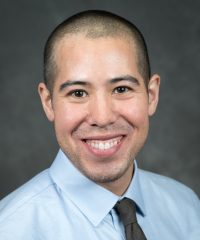
Dr. Nathaniel Chin is the creator and host of Dementia Matters. He is a geriatrician, memory clinic doctor, and medical director for the Wisconsin Alzheimer's Disease Research Center. His father's diagnosis with early onset Alzheimer’s disease inspired him to pursue a career as a geriatrician and scientist focused on dementia prevention, especially in regard to Alzheimer's disease.
Dementia Matters is a podcast about Alzheimer’s disease and other causes of dementia. Creator and host Dr. Nathaniel Chin interviews leading scientists and caregiving experts to bring listeners the latest in Alzheimer's disease news, research and caregiver resources.
Three Ways to Listen
You can listen to episodes through our website or subscribe to Dementia Matters through ApplePodcasts, Spotify, Podbean or wherever you get your podcasts. You can hear Dementia Matters on Fridays at 4 p.m. (CT) and again at 10 p.m. (CT) during the "Science Friday" segment on WMUU Radio, 102.9 FM in Madison, and streaming online.
Contact Us
Email your questions and episode suggestions to dementiamatters@medicine.wisc.edu.
Audio Editors: Eli Gadbury and Alexia Spevacek
Executive Producer: Caoilfhinn Rauwerdink
Producer: Amy Lambright Murphy
Make an Impact
Like what you’re hearing and learning? Make an impact when you make a tax-deductible gift to the Dementia Matters fund of the UW Initiative to End Alzheimer’s.
Recent Episodes
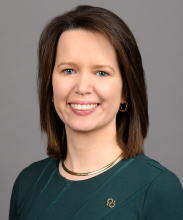
AAIC Special Series Part 1:
To kick off our month-long special series previewing the 2022 Alzheimer’s Association International Conference, or AAIC, we’ve invited Claire Sexton, senior director of the Alzheimer’s Association’s scientific programs, to join us to discuss the goals of AAIC, how the pandemic impacted the influential conference, and what she’s looking forward to at this year’s event.
Guest: Claire Sexton, DPhil, senior director of scientific programs and outreach, Alzheimer’s Association
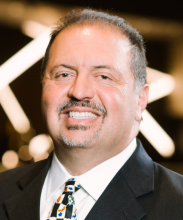
A do-not-resuscitate, or DNR, order is used to indicate when a patient chooses to forgo resuscitation, however recent analysis shows that multiple studies have connected the presence of DNR orders to elevated death rates, poorer medical care, and negative health outcomes. Dr. Jonathan Baktari joins the podcast to discuss the findings from this analysis, how it can impact individuals with Alzheimer’s disease and dementia, and how these concerns can be addressed.
Guest: Jonathan Baktari, MD, CEO, chief medical officer, e7 Health
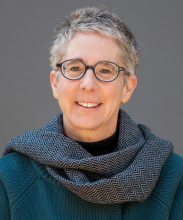
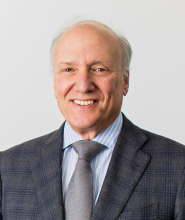
American literature professor and author Cindy Weinstein and behavioral neurologist Bruce Miller join the podcast to discuss their latest book, "Finding the Right Words: A Story of Literature, Grief, and the Brain", a dual-memoir that alternates between Weinstein’s memories of her father who experienced early-onset Alzheimer’s disease and Miller’s scientific responses. They discuss their writing process, developments in Alzheimer's disease research, and their experiences as care partners and care providers to those experiencing dementia.
Guests: Cindy Weinstein, PhD, Eli and Edythe Broad Professor of English, California Institute of Technology and Bruce Miller, MD, director, University of California San Francisco Memory and Aging Center
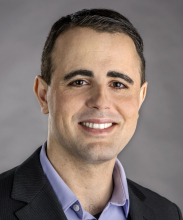
There are many conflicting studies on how alcohol consumption can impact a person’s health, with some studies suggesting light drinking can protect against coronary heart disease and others concluding that drinking can increase your risk for cancer. What does research say about alcohol and the brain? Dr. Remi Daviet joins the podcast to discuss his latest study that found that just one alcoholic drink a day was associated with brain shrinkage, and drinking more could increase that rate exponentially over time.
Guest: Remi Daviet, PhD, assistant professor, Wisconsin School of Business

In honor of Women’s Health Month, Dr. Jessica Caldwell joins the podcast to discuss sex differences in aging and Alzheimer’s disease. She explains some of the ways women experience aging and Alzheimer’s disease differently than men and how she incorporates research findings into patient care.
Guest: Jessica Caldwell, PhD, director, Women’s Alzheimer’s Movement Prevention Center, Cleveland Clinic in Las Vegas, assistant professor, Case Western Reserve University
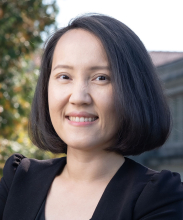
A graduate student from the University of Wisconsin–Madison is pushing for the disaggregation of data in research to better understand how individuals from different ethnic subgroups are represented as research participants and as researchers. Kao Lee Yang began writing and discussing the topic after the Howard Hughes Medical Institute’s Gilliam Fellowship for Advanced Study rejected her application for not meeting their racial and ethnic underrepresentation criteria, despite often being the only Hmong American scientist in many research spaces. Yang joins the podcast to discuss her opinion piece for STAT News, the problems with using aggregated data, and how the push to study individual ethnic groups could improve Alzheimer’s disease research.
Guest: Kao Lee Yang, MPA/PhD candidate in the Neuroscience and Public Policy Program and Bendlin Laboratory, University of Wisconsin–Madison
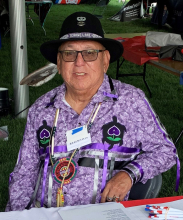
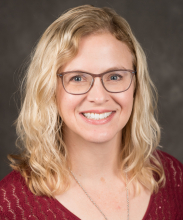
Dr. Cynthia Carlsson and Daniel A. King join the podcast to discuss some of the unique ways that Alzheimer’s disease affects Veterans and Native Americans. Their work at the Wisconsin Alzheimer’s Disease Research Center allows them to connect with people who are at higher risk for Alzheimer’s disease and help educate them on how to maintain brain health, both through Dr. Carlsson’s research and clinical practice and Mr. King’s outreach to Veterans and Native Americans. Discussing the importance of current outreach and educational efforts as well as what they’ve learned from engaging with Veterans and Native Americans, Dr. Carlsson and Mr. King describes how understanding different cultures and community experiences can help Alzheimer’s disease research better support underserved populations.
Guests: Cynthia Carlsson, MD, MS, professor of medicine and Alzheimer’s disease researcher, University of Wisconsin School of Medicine and Public Health, geriatrician, William S. Middleton Memorial Veterans Hospital, and Daniel A. King, member of the Oneida Nation of Wisconsin, Veteran recruitment coordinator, Wisconsin Alzheimer’s Disease Research Center
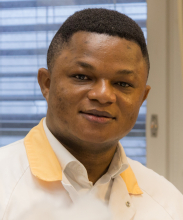
Research in the field of fluid biomarkers is leading to new developments in Alzheimer’s disease identification, including new tests that can predict Alzheimer’s based on biomarkers in blood. Ahead of his keynote address as part of Alzheimer's Disease & Related Dementias Research Day on April 5, 2022, Dr. Thomas Karikari joins the podcast to discuss his work with these new blood tests, how accurate they are, and what research needs to be done before they are made available for clinical use.
Guest: Thomas Karikari, PhD, assistant professor, University of Gothenburg, University of Pittsburgh
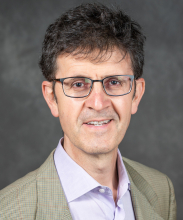
The Puglielli lab at the University of Wisconsin School of Medicine and Public Health has found a way to manipulate autophagy — a process where cells clean out damaged materials — to rid the brain of toxic proteins like amyloid and tau. Researchers hope to use the power of this process to develop future treatments for Alzheimer’s disease and other diseases of aging. Luigi Puglielli joins the podcast to discuss his team’s research over the past 15 years, why the scientific process can take years to turn ideas into possible treatments, and how he hopes this research can be used in the future.
Guest: Luigi Puglielli, MD, PhD, professor of medicine, University of Wisconsin School of Medicine and Public Health
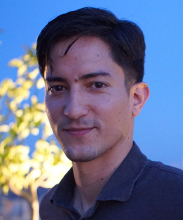
A recent study from Alzheimer’s disease researchers at the University of Wisconsin–Madison used neuroimaging technology called 4D Flow MRI to study the relationship between blood vessel disease and Alzheimer’s disease. Published in December 2021, the study found that people with Alzheimer’s disease symptoms had stiffer blood vessels in their brains, which could lead to inflammation and a buildup of Alzheimer’s biomarkers like amyloid and tau proteins. Lead researcher Leonardo Rivera-Rivera joins the podcast to discuss his findings, the developments made with new 4D Flow MRI scans, and how these developments could impact future Alzheimer’s disease research and clinical practices.
Guest: Leonardo Rivera-Rivera, PhD, neuroimaging scientist, Wisconsin Alzheimer’s Disease Research Center
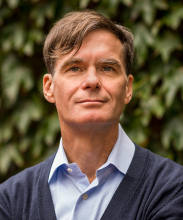
On January 11, the Centers for Medicare and Medicaid Services (CMS) announced its much-anticipated coverage proposal for monoclonal antibody treatments that target amyloid for the treatment of Alzheimer’s disease. According to the proposed policy, this class of drugs, which includes aducanumab, also known by the brand name Aduhelm, would be covered for people with Medicare only if they are enrolled in qualifying clinical trials. Dr. Jason Karlawish joins the podcast to discuss the recent proposal, share his reaction to the decision, and tell us how this coverage policy could impact the development of other Alzheimer’s disease treatments in the future.
Guest: Jason Karlawish, MD, co-director, Penn Memory Center, professor of medicine, medical ethics and health policy, and neurology, University of Pennsylvania
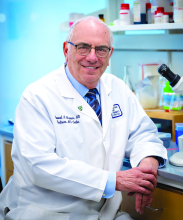
In November 2021, Brigham and Women’s Hospital in Boston launched the first human trial of a nasal vaccine for Alzheimer’s disease. Nearly 20 years of research went into developing the vaccine, which uses the immune system to clear Alzheimer’s disease-related proteins from the brain. Lead researcher Dr. Howard Weiner joins the podcast to discuss the science behind the vaccine and how it could introduce new ways of treating other neurodegenerative diseases in the future.
Guest: Howard Weiner, MD, professor of neurology, Harvard Medical School, co-director, Ann Romney Center for Neurologic Diseases, Brigham and Women’s Hospital
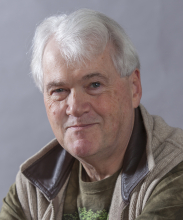
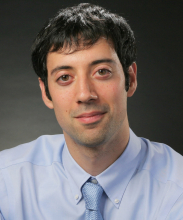
Medical anthropologist and professor of humanities and public health sciences Daniel George, PhD, and professor of neurology and medicine Peter Whitehouse, MD, PhD, join the podcast to discuss their recent book, American Dementia: Brain Health in an Unhealthy Society. In it, they argue that 20th century policies focused on reducing inequality, increasing access to education and healthcare, and protecting the environment contributed to today’s declining dementia rates, but inequalities in the 21st century are reversing these trends. Discussing the pros and cons of current social and clinical approaches to Alzheimer’s disease, our guests challenge assumptions about dementia caregiving and show how we can work together to create a healthier society.
Guests: Daniel George, PhD, medical anthropologist, associate professor of humanities and public health sciences, Penn State College of Medicine, and Peter Whitehouse, MD, PhD, professor of neurology, Case Western University, professor of medicine, University of Toronto
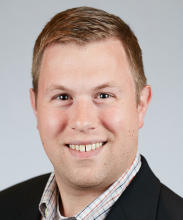
There are many common beliefs about metabolism. Perhaps you’ve heard that a person’s metabolism slows around middle age, or that a woman’s metabolism is slower than a man’s. However widespread these beliefs are, recent research from the journal Science has found that these conceptions of metabolism are wrong. In a groundbreaking study, researchers have found that metabolism goes through four key phases over our lives, only beginning to slow around age 60. This, among other findings, are now changing how we think about human physiology and how we think about aging. Breaking down this new research and his perspective article on the findings, Dr. Rhoads describes our shifting understandings of metabolism and how it impacts chronic diseases like Alzheimer’s disease as we age.
Guest: Tim Rhoads, PhD, assistant scientist, Rozalyn Anderson laboratory, University of Wisconsin School of Medicine and Public Health
Dementia impacts a person’s ability to complete day-to-day activities like familiar tasks at work or at home. What if we could identify these changes in everyday behaviors early enough to identify preclinical Alzheimer’s disease? That’s what Dr. Sayeh Bayat, an assistant professor at the University of Calgary, looked to find out. Dr. Bayat is the lead author of a recent paper highlighting how driving behaviors such as braking, following the speed limit and the number of trips taken could predict preclinical Alzheimer’s disease. Dr. Bayat joined the podcast to share findings from the paper and discuss some of the ways engineering and machine learning can help us discover more about dementia and aging.
Guest: Sayeh Bayat, PhD, assistant professor, Department of Geomatics Engineering, University of Calgary
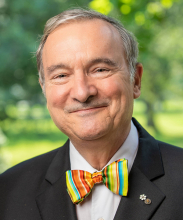
Alzheimer’s Disease International’s World Alzheimer’s Report 2021 recently found that 75% of people with dementia are undiagnosed, equating to 41 million people across the globe. The report, subtitled “Journey through the diagnosis of dementia,” also found clinician stigma is still a major barrier to diagnosis, and one in three believe nothing can be done about dementia. Dr. Serge Gauthier, co-author of the report, joins the podcast to discuss these findings, recommendations for improving dementia diagnoses, and more from the report.
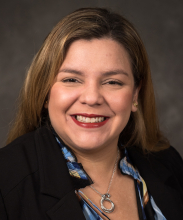
UsAgainstAlzheimer’s newly-released tool, BrainGuide, may seem like a simple questionnaire, but the project highlights a growing movement to make Alzheimer’s disease research and resources accessible to a broader range of communities. Released in 2021, BrainGuide is a one-of-a-kind resource that provides information about Alzheimer’s disease in English and Spanish through online and telephone questionnaires. Dr. Maria Mona Pinzon, a physician-scientist at the University of Wisconsin School of Medicine and Public Health and a consultant on BrainGuide, joins the podcast to discuss the impacts this project has had on educating the Latinx community about Alzheimer’s disease. Discussing the barriers and risks that the Latinx community face surrounding brain health, the ways to connect with the community through research, and her experience working on BrainGuide, Dr. Pinzon highlights the importance and impacts of community-tailored research and resources.
Guest: Maria Mona Pinzon, MD, MS, University of Wisconsin School of Medicine and Public Health
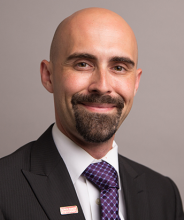
A recent study of nearly 1,800 participants from the UK Biobank found that three dietary elements — cheese, wine, and lamb — may improve long-term cognitive outcomes in aging adults. Dr. Auriel Willette, assistant professor of food science and human nutrition at Iowa State University, joins the podcast to discuss these new findings linking diet and cognitive changes. In November 2020, Willette published a study in the Journal of Alzheimer’s Disease titled “Genetic Factors of Alzheimer’s Disease Modulate How Diet is Associated with Long-Term Cognitive Trajectories: A UK Biobank Study,” where he and his team studied the effects of particular foods on a person’s brain health over time. As well as the findings surrounding cheese, wine, and lamb, they found that limiting salt intake was good for the brain, especially for those at risk for Alzheimer’s disease. Discussing the field of nutritional research, his prior work studying diet and brain health, and how these findings impact other recommended diets, Willette provides insight into how our current diets can impact our health and cognitive abilities later in life, allowing us to make better choices for the future.
Guest: Auriel Willette, PhD, associate professor of food science and human nutrition, Iowa State University.
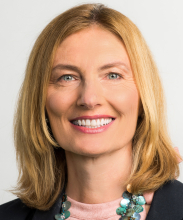
With the numerous efforts currently focused on educating the public about dementia, from clinical programs to research to podcasts (like this one), how much is stigma surrounding cognitive decline affecting public understanding?
On today’s podcast, Sarah Lock, Senior Vice President for Policy for AARP, discusses just that. This year, the AARP published a report on a survey focused on how the general American population and particular subgroups perceive dementia and dementia diagnoses. The survey found that the general public and health care professionals have many misperceptions about dementia, including overestimations about their likelihood to develop dementia and the shame they might feel about a diagnosis. Describing the contrasting perceptions between clinicians and the public and the impacts of stigma on dementia policy, Lock details the ways this survey will allow the AARP to build on their existing programs about brain health to better educate the public about dementia and the ways it affects a person’s life.
Guest: Sarah Lenz Lock, Senior Vice President for Policy, AARP, Executive Director of the Global Council on Brain Health
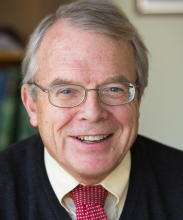
When talking about dementia caregiving, researchers are often working toward new treatments and strategies for supporting people with Alzheimer’s disease and dementia. But how can we push the topic further and learn how we can better support dementia caregivers themselves? Dr. Eric Larson joins the podcast to discuss possible interventions to support patients with dementia and their caregivers and care partners. Dr. Larson chaired a National Academy of Medicine committee focused on researching dementia caregiving interventions. As part of their report titled “Meeting the Challenge of Caring for Persons Living with Dementia and Their Care Partners and Caregivers: A Way Forward,” the committee found that two models, the Collaborative Care Model and REACH (Resources for Enhancing Alzheimer’s Caregiving Health), had the most evidence of benefits for supporting people with dementia and their care partners and caregivers. Discussing this new report, the recent approval of aducanumab, and the field of geriatrics as a whole, Dr. Larson shines a light on the nuances of dementia research and dementia caregiving.
Guest: Eric Larson, MD, MPH, Senior Investigator, Kaiser Permanente Washington Health Research Institute
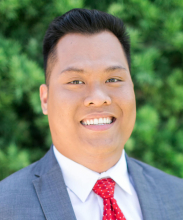
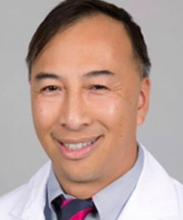
Vince Tien and Dr. Dung Trinh join the podcast to discuss the many ways Alzheimer’s disease affects the Asian Americans and Pacific Islanders (AAPI) community. Vince Tien and Dr. Trinh both work as part of 360 Clinic, a multi-specialty medical group focused on telehealth services. With their experience in healthcare and telehealth services amidst the pandemic, Tien and Dr. Trinh describe the barriers and stigma that discourage the AAPI community from seeking help for dementia and the ways that we can dismantle those barriers.
Guests: Vince Tien, co-founder, CEO, 360 Clinic, and Dung Trinh, MD, chief medical officer, 360 Clinic
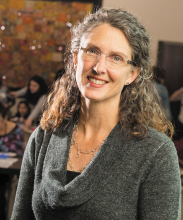
What would happen if caregiving strategies were inspired by wonder rather than memory? That’s what Dr. Anne Basting, founder and president of the nonprofit TimeSlips, asked when she began her research into how the arts could be integrated into dementia caregiving. Basting joins the podcast to discuss her caregiving approach rooted in creative engagement and imagination. From storytelling to beautiful questions to performance, Basting describes a new way of caregiving that helps caregivers and families meet patients and loved ones where they’re at to have meaningful connections and spark joy in the later years of life.
Guest: Anne Basting, PhD, professor of English at the University of Wisconsin-Milwaukee, founder and president of TimeSlips, author of Creative Care
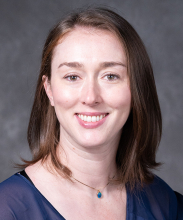
Researchers have produced many studies on how smoking affects parts of the body, such as the lungs or heart, but what about the brain? In today’s podcast, Adrienne Johnson, PhD, discusses her research on cigarette smoking and risk for dementia and Alzheimer’s disease. As part of a 2021 study, she found a person’s risk for dementia and Alzheimer's disease can be affected by how recently they’ve smoked. Diving into her research, the effects of smoking on different communities, and resources to support current smokers as they quit, Dr. Johnson details the impact of smoking on the brain and her hopes to develop new interventions to motivate smokers to quit for good.
Guest: Adrienne Johnson, PhD, assistant scientist at the University of Wisconsin Center for Tobacco Research and Intervention
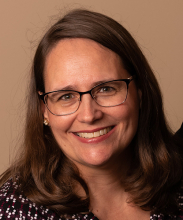
Elisa Ghezzi, DDS, PhD, joins the podcast to discuss the importance of maintaining oral health throughout one’s life, and especially as one grows older. Discussing the effects of oral health on our systemic health, oral health’s connection to dysphagia, and how caregivers can help dementia patients care for their teeth, Dr. Ghezzi provides insight on how vital it is to care for our oral health as we age.
Guest: Elisa Ghezzi, DDS, PhD, adjunct clinical assistant professor, University of Michigan School of Dentistry, provider, Voiage Portable Dentistry
Dementia Matters has entered into the 2021 People's Choice Podcast Awards! If you enjoy our show and want to support us, register and vote before July 31st at www.podcastawards.com, and vote for us under the Health and People's Choice categories. We, the Dementia Matters team, hope that by participating, we can continue spreading our message and educate new listeners about Alzheimer’s Disease, Dementia, and brain health.




